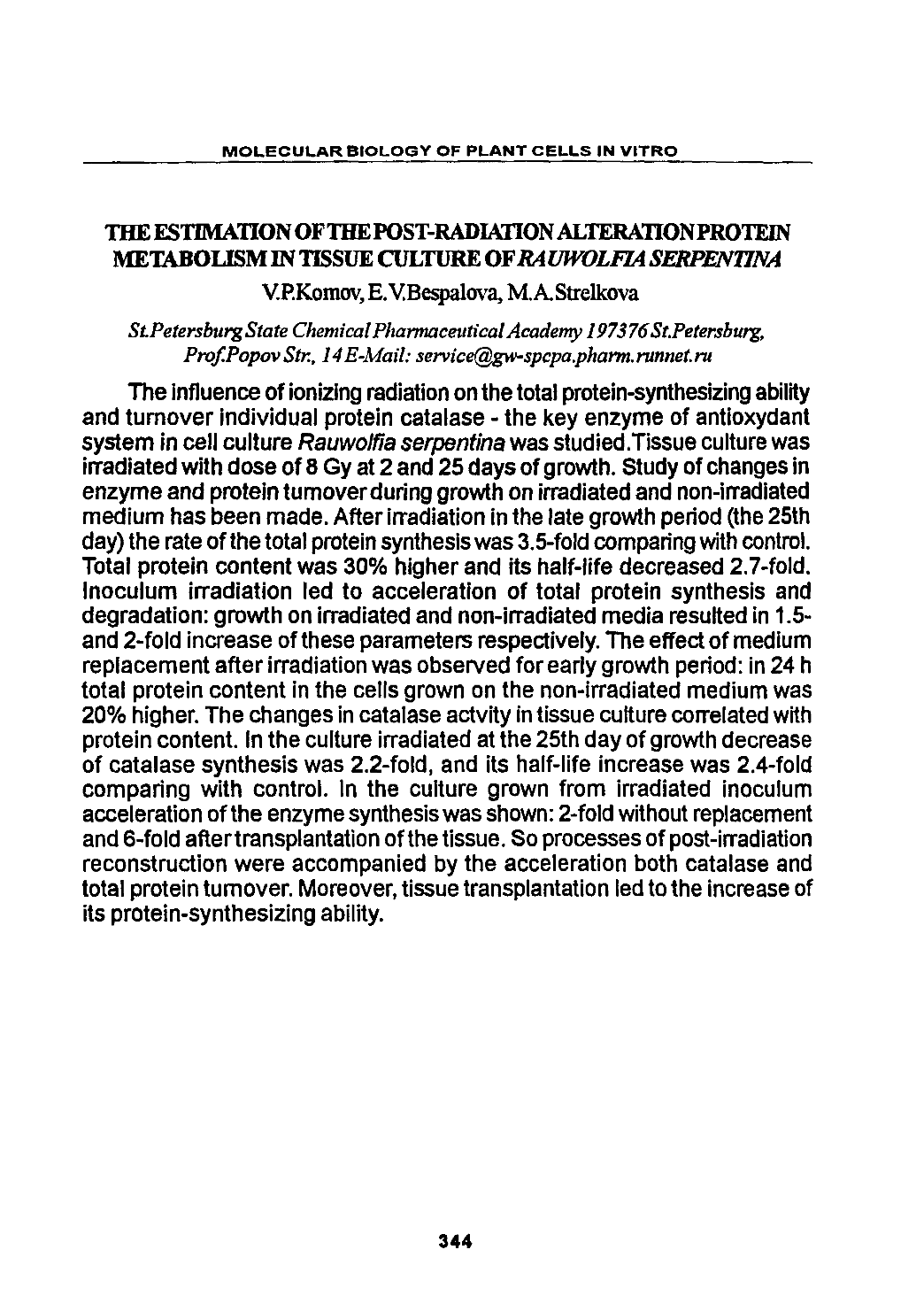

M O L E C U LA R B IO LOGY O F PLAN T C E L L S IN V ITRO
THEESTIMATIONOFTHEPOST-RADIATIONALTERATIONPROTEIN
METABOLISMINTISSUECULTUREOF
RAUWOLFIA SERPENTINA
V.P.Komov,E.V.Bespalova,M.A .Strelkova
St.Petersburg State ChemicalPharmaceuticalAcademy 197376S t.Petersburg,
Prof.Popov Str., 14E-Mail:
service@gw-spcpa.pharm.rmnet.ruThe influence o f ionizing radiation on the total protein-synthesizing ability
and tu rnove r individual protein catalase - the key enzyme of antioxydant
system in cell culture
Rauwolfia serpentina
was studied. Tissue culture was
irradiated w ith dose o f 8 Gy at 2 and 25 days of growth. Study of changes in
enzyme and protein tu rno verduring growth on irradiated and non-irradiated
medium has been made. After inradiation in the late growth period (the 25th
day) the rate o f the total protein synthesis was 3.5-fold comparing with control.
Total protein content was 30% higher and its half-life decreased 2.7-fold.
Inoculum irradiation led to acceleration o f total protein synthesis and
degradation: growth on irradiated and non-inradiated media resulted in 1.5-
and 2-fold increase of these parameters respectively. The effect o f medium
replacement a fte r irradiation was observed fo r early growth period: in 24 h
total protein content in the cells grown on the non-irradiated medium was
20% higher. The changes in catalase actvity in tissue culture correlated with
protein content. In the culture irradiated at the 25th day o f growth decrease
o f catalase synthesis was 2.2-fold, and its half-life increase was 2.4-fold
comparing w ith control. In the culture grown from irradiated inoculum
acceleration of the enzyme synthesis was shown: 2-fold without replacement
and 6-fold after transplantation of the tissue. So processes of post-inradiation
reconstruction were accompanied by the acceleration both catalase and
total protein turnover. Moreover, tissue transplantation led to the increase of
its protein-synthesizing ability.
344
Научная электронная библиотека ЦНСХБ









